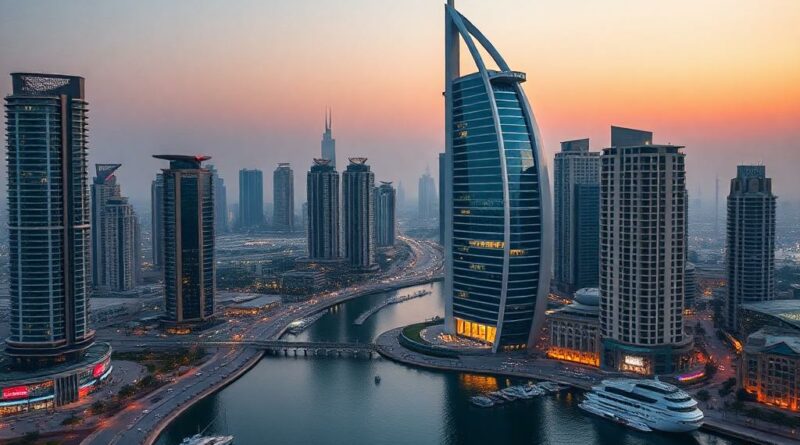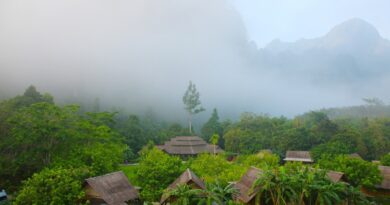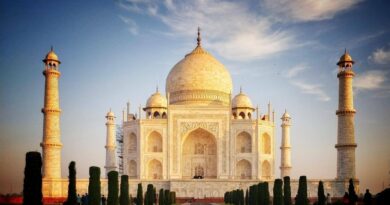Dubai: A Global Metropolis of Innovation and Luxury
Dubai: A Modern Metropolis in the Heart of the Desert
Dubai, one of the seven emirates that make up the United Arab Emirates (UAE), is a global city known for its dazzling skyline, extravagant lifestyle, and rapid development. From its humble beginnings as a small fishing village, Dubai has transformed into a major economic and cultural hub, attracting millions of visitors and investors each year. This 600-word essay explores the history, economy, architecture, and lifestyle of Dubai, showcasing how it has become a symbol of modernity and innovation.
A Brief History
Dubai’s history dates back to the early 18th century when it was a small fishing and trading settlement. The discovery of oil in the 20th century marked a turning point in the city’s history. Before oil, Dubai’s economy was based on pearl diving, fishing, and trade, benefiting from its strategic location along the Arabian Gulf. The emirate’s rulers, particularly Sheikh Rashid bin Saeed Al Maktoum, played a key role in transforming Dubai into the thriving city it is today.
In 1971, the UAE was formed, and Dubai became one of the founding members. The influx of oil wealth in the 1970s allowed the emirate to invest in infrastructure, education, and healthcare, setting the stage for its rapid growth. Over the next few decades, Dubai used its oil revenue to diversify its economy, investing heavily in sectors like tourism, real estate, aviation, and trade.
Economic Growth and Diversification
Dubai’s economy today is no longer reliant on oil alone. While oil still plays an important role, the city has successfully diversified into various sectors. The emirate’s location between Europe, Asia, and Africa makes it a key hub for international trade. The Dubai International Financial Centre (DIFC) serves as a major financial and business center, while the Port of Jebel Ali is one of the largest and busiest ports in the world.
Tourism is another cornerstone of Dubai’s economy. The city attracts millions of visitors annually, drawn by its luxury shopping, world-class hotels, and unique attractions. Dubai’s strategic positioning as a gateway to the Middle East, Asia, and Africa has made it a key destination for both leisure and business travelers. Events like the Dubai Shopping Festival, Dubai International Film Festival, and World Expo 2020 (which took place in 2021) further bolster the city’s global appeal.
The real estate sector has also played a pivotal role in Dubai’s growth. Iconic developments such as the Burj Khalifa, the tallest building in the world, and Palm Jumeirah, an artificial archipelago, showcase Dubai’s ambition to create structures that push the boundaries of architectural design and engineering.
Architecture and Urban Development
Dubai is perhaps most famous for its ambitious architecture and innovative construction projects. The city is home to some of the world’s most recognizable buildings and landmarks. The Burj Khalifa, standing at 828 meters (2,717 feet), dominates the skyline and serves as a symbol of Dubai’s modernity. DFYNE The Burj Al Arab, shaped like a sail, is another iconic structure, often referred to as the world’s only seven-star hotel.
In addition to these towering structures, Dubai is known for its luxurious developments. Palm Jumeirah, one of the world’s largest artificial islands, features upscale residences, hotels, and resorts. Dubai Marina, a man-made canal city, houses some of the most expensive real estate in the world. The city’s architecture is a blend of modern designs with traditional Middle Eastern elements, creating a unique and visually stunning cityscape.
Dubai is also focusing on sustainable urban development. The city has made significant strides in incorporating green technologies, such as solar energy, into its infrastructure. The Dubai Green Building Regulations, introduced in 2010, set standards for environmentally friendly construction practices. Dubai is also home to the Dubai Sustainable City, an innovative project that aims to be a model for sustainable living in the region.
Lifestyle and Culture
Dubai is renowned for its luxurious lifestyle, which is evident in its world-class shopping malls, fine dining establishments, and extravagant entertainment options. The Dubai Mall, one of the largest shopping centers in the world, features over 1,200 retail stores, an indoor ice rink, and an aquarium. Dubai’s culinary scene is equally impressive, offering a range of international cuisines, from Michelin-starred restaurants to street food.
Despite its modernity, Dubai retains its cultural heritage. The city is home to traditional markets, or souks, such as the Gold Souk and the Spice Souk, where visitors can experience the vibrant atmosphere of a bygone era. Dubai also has a thriving arts and cultural scene, with institutions like the Dubai Opera, the Dubai Museum, and Alserkal Avenue showcasing local and international talent.
Dubai is a cosmopolitan city, with a diverse population made up of people from all over the world. While Islam is the official religion, the city is known for its tolerance and openness to different cultures and religions. Dubai’s government has worked to strike a balance between preserving traditional values and embracing modernization, making it a city where both the old and new coexist harmoniously.




